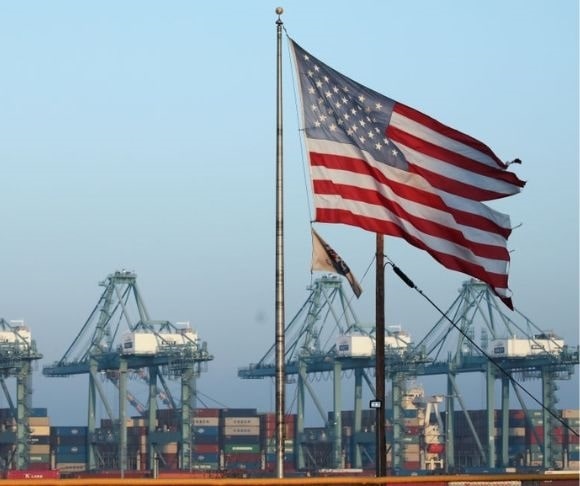The House Foreign Affairs Committee (HFAC) continues apace to fully understand the Chinese threat to the economic well-being of the United States. At an HFAC hearing on June 14, led by Chairman Michael McCaul (R-TX), committee members heard testimony from three Biden administration members who provided views on the challenge of dealing with Beijing’s Belt and Road Initiative (BRI).
In his opening statement, McCaul asserted that the People’s Republic of China (PRC) focuses on a growing number of countries with oppressive credit schemes that benefit Beijing at the expense of US trade initiatives. “The PRC designed the Belt and Road Initiative with its own interests in mind – giving the PRC access to strategic resources to drive its own economic growth and foreign policy objectives,” confirmed Andrew Herscowitz, chief development officer of the US International Development Finance Corporation.
Assistant Secretary of Commerce for Global Markets Arun Venkataraman explained clearly the scary global challenge the BRI represents to the United States. He pointed out three such obstacles in his testimony:
“Notwithstanding China’s best efforts to portray China’s BRI as a generous offering to advance infrastructure development and economic growth around the world, our trading partners increasingly share our view that BRI poses more risk than opportunity.
“First, China’s BRI can threaten the economic development of our trading partners.
“Second, China’s BRI threatens US economic and national security interests.
“Third, China’s BRI diminishes the ability of US companies to sustain market share and to compete in markets around the world.”
Venkataraman described the PRC testing of America’s economic capability as “fiercer and more pressing than ever before.” He warned that Communist Chinese Party (CCP) investments in “transportation infrastructure have supported and reinforced China’s control of critical supply chain chokepoints” — the same supply chains crucial to getting resources to build US defense capabilities.
China Has Smart Investment Priorities

Geoffrey Pyatt (Photo by STR/NurPhoto) (Photo by NurPhoto/NurPhoto via Getty Images)
Assistant Secretary for Energy Resources Geoffrey Pyatt told the committee the PRC was investing “over $7 billion in a new battery gigafactory in Hungary, intending to capture and lock down the battery supply chain for BMW and Mercedes.” This means that even if the United States developed a more secure and efficient automobile battery, America’s manufacturers would find a significant portion of the European market unavailable.
Rep. Christopher Smith (R-NJ) raised the issue of critical metals and US access to lithium for lithium-ion batteries that power nearly everything citizens and the military use. China owns or controls 15 of 19 lithium and cobalt mines and processing facilities in the Democratic Republic of the Congo, where 40,000 children labor under brutal conditions “at the behest of the Chinese companies.” Smith asked the panel for assistance to craft legislation to address these horrible conditions. Pyatt, while not fully addressing the issue, said his office would be helpful.
Rep. Ann Wagner (R-MO) questioned the disparity between the number of US foreign service officers in Asia compared with those from China. Venkataraman confirmed that China has more by a significant factor. Wagner wondered how the United States can hope to compete with the CCP when US diplomats are absent. In addition, she bemoaned the lack of US companies marketing to the Pacific Islands, where China has a robust presence. Further, she asked what is being done to mitigate the presence of the PRC in the Arctic. Pyatt explained the United States has been talking to members of the Arctic Council about the intrusion of China in the North.
McCaul suggested that if the State Department reinvigorated diplomatic initiatives and spent less time on social justice campaigns, the United States might be able to address China’s strong economic global push. “While China has focused on consolidating power, we have prioritized a $100 billion climate fund to help developing nations transition to clean energy … offering Palestinians $100,000 to promote diversity, equity, and inclusion in arts and sports; and a State Department grant of over $20,000 for drag shows in Ecuador,” the HFAC chairman lamented.
The United States is not present on the global stage in the same numbers and with the same energy as Communist China, our primary rival. Do we need to pay for drag shows in countries that are desperate for jobs and are being enticed into moving into China’s economic orbit?




